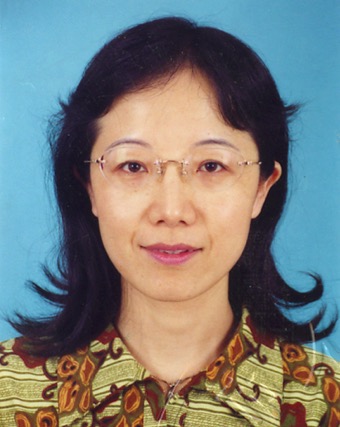Dong-Mei Guo

Dong-Mei Guo, M.D
Chief physician, Department of Neurology of Xuanwu Hospital affiliated to Capital Medical University
Expert, Beijing Municipal Committee of labor ability identification
Expert, Beijing Specialist Training Committee
Expert, Beijing Municipal Health Bureau Community Technical Expert Group
Summary:
Dongmei Guo, chief physician in neurology is the Chief physician of Department of Neurology of Xuanwu Hospital affiliated to Capital Medical University, one of the first established departments of neurology with the largest scale in China. It has been the national base for advanced studies of neurological physicians and has trained many medical personnel throughout the country.
Since she works in a hospital, she never gave up on the development of clinical diagnosis. It is due to the clinical experience, she made a lot of important research results especially in the brain cysticercosis, cerebrovascular disease and senile degenerative disease. In recent years she published more than 20 papers and some books as the chief editor of neurological disease like “the nervous system diseases”.
Three representative publications:
1. Guo Dongmei, Han Chongyu. The clinical analysis of diagnosis and treatment for the large cystic form of neurocysticercosis.
2. Guo Dongmei, Wang xianling, Jia qian. General paresis of insane (GPI). Chinese J Clinicians (Electronic Edition). February 15,2012, Vol 6, No 4.
3. Guo Dongmei, Da yuwei, Zhang xinqing. Clinical Features and Diagnosis of Kennedy’s Disease. Chinese Journal of Rehabilitation Theory and Practice.
Research Interests:
1. Analysis of the clinical features in Neurosyphilis
The aim of this research is to investigate the clinical features in neurosyphilis as to offering evidences of early diagnosis. Clinical feature, neuroimages and laboratory findings of three cases of neurosyphilis were analyzed retrospectively. The clinical manifestions of neurosyphilis are closely related to pathological types. Misdiagnosis rate is high at initial reception. Important basis of diagnosis remains on clinical manifestationsand positive syphilis antibody in serum or CSF.
2. Clinical Features and Diagnosis of Kennedy’s Disease
The purpose of this research is to explore the clinical features and diagnosis of one Kennedy’s disease. Despite its relatively typical manifestations, the definite diagnosis of Kennedy’s disease should be made by detecting the number of CAG from the repetitive CAG region in the first exon of androgen receptor gene.
3. The clinical analysis of diagnosis and treatment for the large cystic form of neurocysticercosis
The purpose of this research is to study the clinical characteristics and optimum methods of treatment in the large cystic form of neurocysticercosis. The large cystic form of neurocysticercosis has certain the clinical characteristics and MRI characteristic manifestations. The essential treatment of the cystic form of neurocystisercosis is pharmacological therapy. Albendazole greatly improves the large cystic form of neurocysticercosis.
Publications:
1. Guo Dongmei, Han Chongyu. The clinical analysis of diagnosis and treatment for the large cystic form of neurocysticercosis.
2. Guo Dongmei, Wang xianling, Jia qian. General paresis of insane (GPI). Chinese J Clinicians (Electronic Edition). February 15,2012, Vol 6, No 4.
3. Guo Dongmei, Da yuwei, Zhang xinqing. Clinical Features and Diagnosis of Kennedy’s Disease. Chinese Journal of Rehabilitation Theory and Practice.
4. Guo Dongmei, Jia Qian, Song Yang, Jia Jianping. Analysis of the clinical features in three cases of neurosyphilis. Journal of Brain and Nervous Diseases. 1006 351X 2006 03 0253 03.
5. Guo Dongmei, Chen Hai, Jia Qian. Analysis of the clinical characteristics and diagnosis evidence of tabes dorsalis. Journal of Brain and Nervous Diseases. 1006 351X 2007 03 0296 02.

